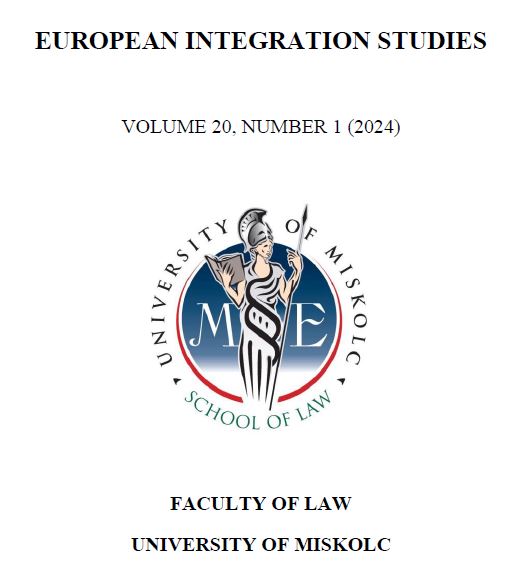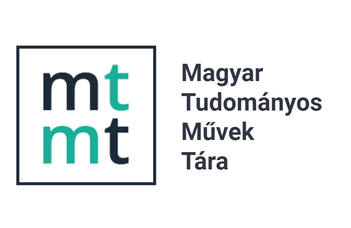The rights and well-being of children of incarcerated parents in Estonia
DOI:
https://doi.org/10.46941/2024.1.8Schlagworte:
child’s rights; well-being; incarcerated parents; child-parent relations; international and national legislation, Estonia.Abstract
This article provides an overview of the situation of children of incarcerated parents (IP) in Estonia compared to the international situation from the perspective of the rights and well-being of the child. Studies published in recent years focus on the negative impact of parental imprisonment on the well-being of their children and on child resilience (i.e. how children cope with this difficult situation). Legal regulation seeks to provide a framework to safeguard the child's well-being considering the child's rights. Drawing on relational-culture theory, this article addresses the issue of parental imprisonment from the perspective of the relationships between the different actors involved – the child, the IP, other carers outside the prison, the community, and society. Legal regulation seeks to standardise these relationships at international and national levels. The international legislation (United Nations Convention on the Rights of the Child, Charter of Fundamental Rights of the European Union, Council of Europe on European Prison Rules) is designed to protect the rights and well-being of the child, and it must be considered in all situations worldwide, including when a parent is serving a prison sentence. The main question of this article is how does Estonian legislation, child protection policy, and practice meet international requirements for children of detained parents? Using a case-study method, the article introduces the current situation in the Estonian prison system in terms of conditions for communication between children with their IPs. The relevant Estonian laws (Constitution of the Estonian Republic, Family Law Act, Child Protection Act, Prison Act, Prison Rules) are analysed in the article in comparison to international legislation and their practical implementation.
Literaturhinweise
Aas, A.-M. (2018) Laps vanglas ema juures: spetsialistide tõlgendused lapse heaolust. [Child in prison with mother: professionals' interpretations of child well-being] Bachelor thesis. Tartu: Tartu Ülikool, [Online]. Available at: https://dspace.ut.ee/items/e73af4ad-b3a3-489c-bc19-409f8a93d7bc (Accessed: 1 February 2024).
Aaslaid S.-M. (2022) Vangistuse mõju kinnipeetavate perekonnale [The impact of imprisonment on the family of prisoners]. Bachelor thesis. Tartu: Tartu Ülikool, [Online]. Available at: https://dspace.ut.ee/items/877cc0be-fe2b-4185-b55c-4a76859d9daa (Accessed: 1 February 2024).
Axelson, A., Kelleher, K., Chisolm, D., Boch, S. (2020) ‘”How do I help this kid adjust to what real life is for them?”: Youth service providers experiences on supporting children with incarcerated parents’, Children and Youth Services Review, 2020/110; https://doi.org/10.1016/j.childyouth.2020.104802.
Aru, A. (2016) ’Kas elu koos emaga vanglas võib olla lapse parimates huvides? [Can life with mother in prison be in the child's best interests?]’, Sotsiaaltöö [Journal of Social Work], 4, pp. 38-40.
Ben-Arieh, A., Casas, F., Frønes, I., Korbin, J. E. (2014) ‘Multifaceted Concept of Child Well-Being’ in A. Ben-Arieh, F. Casas; I. Frønes, J. Korbin (eds.) Handbook of Child Well-Being. Theories, Methods and Policies in Global Perspective. New York: Springer, pp. 1-27.
Benninger, E., Schmidt-Sane, M., Massey, S., Athreya, B. (2023) ‘Youth for Youth: Raising the voices of children of incarcerated parents and implications for policy and Practice’, Community Psychology, 51, pp. 2133-2162; https://doi.org/10.1002/jcop.23014.
Berkel, C., O’Hara, K., Eddy, J. M., Rhodes, C. A., Blake, A., Thomas, N., Hita, L., Herrera, D., Wheeler. A. C., Wolchik, S. (2023) ‘The Prospective Effects of Caregiver Parenting on Behavioural Health Outcomes for Children with Incarcerated Parents: a Family Resilience Perspective’, Prevention Science, 2023/24, pp. 1198-1208; https://doi.org/10.1007/s11121-023-01571-9.
Besemer, K. L., Dennison, S. M., Bijleveld, C. C. J. H., Murray, J. (2019) ‘Effects of Parental Incarceration on Children: Lessons from International Research’ in Eddy J. M., Poehlman-Tynan J. (eds.) Handbook on Children with Incarcerated Parents. Research, Policy, and Practice. 2nd edn., Cham: Springer, pp. 65–81; https://doi.org/10.1007/978-3-030-16707-3.
Bourgeois, J. W., Drake, J., Henderson, H. (2022) ‘The Forgotten: The Impact of Parental and Familial Incarceration of Fragile Communities’, in Krysik, J., Rodriguez, N. (eds) Children of Incarcerated Parents. Integrating Research into Practices and Policy. Cham: Springer, pp. 65-88; https://doi.org/10.1007/978-3-030-84713-5_4.
Bowlby, J. (1953) Child care and growth of love. London: Penguin.
Bowlby, J. (1988) A secure base. London: Routledge.
Copp, J. E., Giordano, P., Longmore, M. A., Manning, W. D. (2022) ‘Family- and School-Based Sources of Resilience Among Children of Incarcerated Parents’, in Krysik, J., Rodriguez, N. (eds) Children of Incarcerated Parents. Integrating Research into Practices and Policy. Cham: Springer, pp. 41-62; https://doi.org/10.1007/978-3-030-84713-5_3.
Coronado, I. (2022) ‘We Are Not Collateral Consequences: Arrest to Reentry Policy Solutions for Children of Incarcerated Parents’, in Krysik, J., Rodriguez, N. (eds) Children of Incarcerated Parents. Integrating Research into Practices and Policy. Cham: Springer, pp. 195-204; https://doi.org/10.1007/978-3-030-84713-5_10.
Doka, K. (1989) Disenfranchised grief: Recognizing hidden sorrow. Lexington, MA: Lexington Books.
Eddy, M. J., Poehlmann-Tynan, J. (2019) ‘Interdisciplinary Perspectives on Research and Intervention with Children of Incarcerated Parents’, in Eddy, J. M., Poehlman-Tynan, J. (eds.) Handbook on Children with Incarcerated Parents. Research, Policy, and Practice. 2nd edn., Cham: Springer, pp. 3-10; https://doi.org/10.1007/978-3-030-16707-3.
Flaquer, L. (2014) ‘Family-Related Factors Influencing Child Well-Being’, in Ben-Arieh, A., Casas, F., Frønes, I., Korbin, J. (eds.) Handbook of Child Well-Being. Theories, Methods and Policies in Global Perspective. New York: Springer, pp. 2229-2255, https://doi.org/10.1007/978-90-481-9063-8_87.
Goleman, D. (2006) Social intelligence: The new science of human relationships. New York: Bantam Books.
Goffman, E. (1963) Stigma. New York: Simon & Schuster.
Hollins, W., Krupat, T. (2022) ‘Language as a Protective Factor: Making Conscious Word Choices to Support Children with Incarcerated Parents’, in Krysik, J., Rodriguez, N. (eds) Children of Incarcerated Parents. Integrating Research into Practices and Policy. Cham: Springer, pp. 121-132; https://doi.org/10.1007/978-3-030-84713-5_6.
Johnson, E., Arditti, J. A. (2022) ‘Adolescents with Incarcerated Parents: Toward Developmentally Informed Research and Practice’, in Krysik, J., Rodriguez, N. (eds) Children of Incarcerated Parents. Integrating Research into Practices and Policy. Cham: Springer, pp. 23-40; https://doi.org/10.1007/978-3-030-84713-5_2.
Jones, L. N., Keller, E. G., Kelleher, K. J., Chisolm, D. J., Boch, S. J. (2024) ‘“Devastating…Having My Child on the Opposite Side of a Window”: Family Visiting Experiences and Considerations for Supporting Youths with Incarcerated Parents’, Journal of Child and Family Studies, 33, 2024, pp. 25-38; https://doi.org/10.1007/s10826-023-02769-9.
Kerr, M. L., Charles, P., Massoglia, M., Jensen, S., Wirth, J., Fanning, K., Holden, K., Poehlmann-Tynan, J. (2022). ‘Development and Implementation of an Attachment-Based Intervention to Enhance Visits Between Children and Their Incarcerated Parents’, in Krysik J., Rodriguez, N. (eds) Children of Incarcerated Parents. Integrating Research into Practices and Policy. Cham: Springer, pp. 135-152; https://doi.org/10.1007/978-3-030-84713-5_7.
Kikerpill, H. (2021) Kinnipeetava õigus suhelda lapsega [Prisoner's right to communicate with their child]. Master thesis. Tartu: Tartu Ülikool, [Online]. Available at: https://dspace.ut.ee/items/b388c8fc-2f36-4d7c-8467-5b4aa34080a7 (Accessed: 10 January 2024).
Kjellstrand, J. M., Reinke, W.M., Eddy, J.M. (2018) ‘Children of incarcerated parents: Development of externalizing behaviours across adolescence’, Children and Youth Services Review, 94, pp. 628-635; https://doi.org/10.1016/j.childyouth.2018.09.003.
Krysik, J., Rodriguez N. (2022) ‘Preface’, in Krysik, J., Rodriguez, N. (eds) Children of Incarcerated Parents. Integrating Research into Practices and Policy. Cham: Springer, pp. vii-xi.
Krysik, J., Rodriguez N. (eds) (2022) Children of Incarcerated Parents. Integrating Research into Practices and Policy. Cham: Springer.
Lee, R. D., D’Angelo, D. V., Burley, K. (2022) ‘Women and Infants Affected by Incarceration: The potential Value of Home Visiting Program Engagement’, in Krysik, J., Rodriguez, N. (eds) Children of Incarcerated Parents. Integrating Research into Practices and Policy. Cham: Springer, pp. 3-22; https://doi.org/10.1007/978-3-030-84713-5_1.
Leeson, C., Morgan, J. (2022) ‘Children with a Parent in Prison England and Wales: A Hidden Population of Young Carers’, Child Care in Practice, 28(2), pp. 196-209; https://doi.org/10.1080/13575279.2019.1680531.
Luther, K. (2016) ‘Stigma Management among Children of Incarcerated Parents’, Deviant Behavior, 37(11), pp. 1264-1275; http://dx.doi.org/10.1080/01639625.2016.1170551.
Marshall, K. (2008) ‘Not seen. Not heard. Not guilty. The rights and status of the children of prisoners in Scotland’, Scotland’s Commissioner for Children and Young People, [Online]. Available at: https://dera.ioe.ac.uk/id/eprint/9399/ (Accessed: 15 February 2024).
Maté, G., Maté, D. (2022) The Myth of Normal – Trauma, Illness and Healing in a Toxic Culture. New York: Penguin Books.
McGinley, M., Jones, C. (2018) ‘Growing Up with Parental Imprisonment: Children’s Experiences of Managing Stigma, Secrecy and Shame’, Practice. Social Work in Action, 30(5), pp. 341-357; https://doi.org/10.1080/09503153.2018.1450497.
McLeod, D. A., Pharris, A. B., Marcus-Mendoza, S., Winkles, R. A. M., Chapman, R., Fulles, C. (2021) ‘Reducing Trauma from Behind Bars: Enhancing Parent-Child Attachment Through a Digitally Distributed Reading Program’, The Prison Journal, 101(5), pp. 575-590; https://doi.org/10.1177/00328855211048181.
Muentner, L., Eddy, M. J. (2023) ‘What they don’t know won’t hurt them? Linking children’s knowledge of parental incarceration to Child well-being during reentry’, Children and Youth Services Review, 144, 2023; https://doi.org/10.1016/j.childyouth.2022.106698.
Navrátilová, J., Navrátil, P., Punová, M., Smutná, V. (2024) ‘Needs of Children with Incarcerated Parents in Their own Voice’, Qualitative Social Work, 23(1), pp. 11-25; https://doi.org/10.1177/1473325022115103.
Nicols, E. B., Loper, A. B., Meyer, P. (2016) ‘Promoting Educational Resilience in Youth with Incarcerated Parents: The Impact of Parental Incarceration, School Characteristics, and Connectedness on School Outcomes’, J Youth Adolescence, 45, pp. 1090-1109; https://doi.org/10.1007/s10964-015-0337-6.
Olesk, M. (2010) Kinnipeetava õigus vanglavälisele suhtlemisele [Prisoner's right to communicate outside prison]. Mater thesis: Tartu: University of Tartu, [Online]. Available at: https://dspace.ut.ee/items/e70ff447-ce2c-4860-b0e7-7d54ce7e4617 (Accessed: 10 January 2024).
Perry, B. D. (2009) ‘Examining Child Maltreatment Through a Neurodevelopmental Lens: Clinical Applications of the Neurosequential Model of Therapeutics’, Journal of Loss and Trauma, 14, pp. 240-255.
Shlafer, R., Davis, L., Dallaire, D. H. (2019) ‘Parental Incarceration During Middle Childhood and Adolescence’, in Eddy, J. M., Poehlman-Tynan, J. (eds.) Handbook on Children with Incarcerated Parents. Research, Policy, and Practice. 2nd edn., Cham: Springer, pp. 101-116; https://doi.org/10.1007/978-3-030-16707-3.
Siegel, D. J. (2012) The developing mind: How relationships and the brain interact to shape who we are. 2nd ed., New York: Guilford Press.
Song, H., Woo, Y., Lee, H. D., Cochran, J. K. (2018) ‘The Dynamics of Intra-Family Relationships During Incarceration and the Implications for Children of Incarcerated Parents’, International Journal of Offender Therapy and Comparative Criminology, 62(12), pp. 3775-3796; https://doi.org/10.1177/0306624X18755481.
Thulstrup, S. H., Karlsson, L. E. (2017) ‘Children of Imprisoned Parents and Their Coping Strategies: A Systemic Review’, Societies, 7(2), 15; https://doi.org/10.3390/soc7020015.
Turney, K. (2018) ‘Adverse childhood experiences among children of incarcerated parents’, Children and Youth Services Review, 89, pp. 218-225; https://doi.org/10.1016/j.childyouth.2018.04.033.
Turney, K., Haskins, A. R. (2019) ‘Parental Incarceration and Children’s Well-being: Findings from the Fragile Families and Child Well-being Study’, in Eddy, J. M., Poehlman-Tynan, J. (eds.) Handbook on Children with Incarcerated Parents. Research, Policy, and Practice. 2nd edn., Cham: Springer, pp. 53-64; https://doi.org/10.1007/978-3-030-16707-3.
van der Kolk, B. (2015) Body Keeps the Score: Brain, Mind, and Body in the Healing of Trauma. New York: Penguin Books.
Žurakovskaja-Aru, K. (2015) ‘Lapse õigus vs võimalus suhelda vangistuses vanemaga – vanglavälisest suhtlemisest ümberpööratuna [The right of the child vs the possibility to communicate with a parent in prison – reversed from communication outside prison]’, Juridica, 6, pp. 405-417.
Chancellor of Justice (2023) Report by the Chancellor of Justice of the Republic of Estonia on implementation of the UN Convention on the Rights of the Child on the combined fifth to seventh periodic reports of the Republic of Estonia, [Online]. Available at: https://www.oiguskantsler.ee/sites/default/files/LOK%20raport%202023_ENG.pdf (Accessed: 18 January 2024)
National Audit Office (2023) Long-term view of the prison system, Report of the National Audit Office to the Riigikogu. Tallinn, 5 October 2023.
Statista (2024) Countries with the largest number of prisoners as of December 2023. https://www.statista.com/statistics/262961/countries-with-the-most-prisoners/ (Accessed 19. February, 2024).





